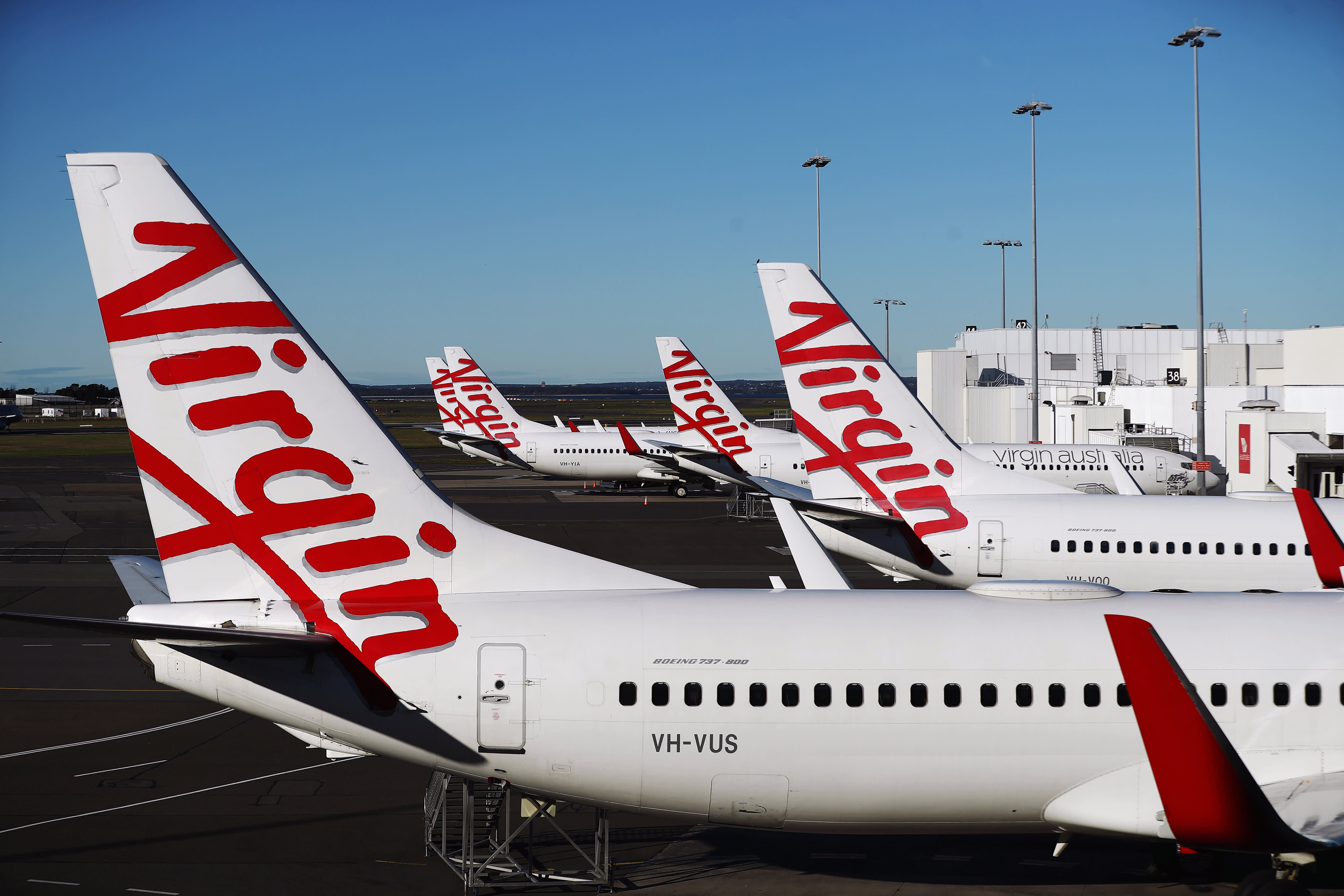
Virgin Australia's creditors on Friday has allowed U.S. private equity company Bain Capital to purchase the airline, Virgin said in a statement, after it filed for bankruptcy protection in April amid a global debt crisis.
The airline was badly hit when travel was halted in most countries earlier this year, in a bid to stem the spread of the coronavirus pandemic. Virgin entered voluntary administration in April, and appointed Deloitte as administrator, after it was unable to find financial support for the business.
The transfer of shares to Bain Capital, which must be approved by the Federal Court of Australia, is expected to be completed by Oct. 31, the statement added.
"This is an important outcome for Virgin Australia, which brings us closer to exiting administration and allows us to focus on the future," said Paul Scurrah, group chief executive and managing director.
"It's been an incredibly tough journey for our people and they should be commended for how they have handled themselves. I'm pleased today gives us some more certainty around the company's future," he said, adding that it is "vital" for Australia to have two major airlines.
Still, he noted that Covid-19 remains "very challenging for our business and industry," and the company needs to adapt to the new environment.
Smaller than before
Greg Smith, head of research at Fat Prophets, said Virgin is under "pretty severe pressure," but has a "viable future" as a smaller airline.
Australian flag carrier Qantas said last month that it expects its domestic market share to "naturally grow" to 70% as the market recovers due to a reduction in Virgin's fleet.
"They will be able to compete as the second airline, but they will be smaller than what they were pre-Covid," Smith told CNBC's "Squawk Box Asia" on Friday.
He also said there may be further job cuts given the economic uncertainty.
"We still see the economy actually getting through this in V-shaped recovery, but … it's going to be tough for a lot of sectors going forward, and that includes the aviation sector," he said. "Virgin may even need to shrink a bit more before it looks at growth again."
Simon Brown of Tribeca Investment Partners said potential layoffs depend on what demand for air travel looks like. "I think there'll be a lot of pent-up demand once borders come down and people are allowed to travel again," the portfolio manager told "Street Signs Asia."
Virgin will see "some good results," he said, but acknowledged that uncertainty remains.
Focus on profits
Brown also said Virgin would now be focused on profits rather than market share.
"In terms of outlook from company management at Virgin, they're talking about … potentially ceding some share, winding back capacity in the domestic market," he said. "I think ultimately that will be a more profit-focused airline going forward for Virgin, which ultimately will be good for the two-player market here in Australia."
'Value airline'
Peter Harbison, chairman emeritus at CAPA Centre for Aviation, said the Virgin's model — which falls between low-cost and full-service carriers — is "pretty much right."
"It's an interesting sort of, not low cost, but what you call 'value airline' in the future," he said.
"I think what you're going to see is an airline which is going to go for the business market, but it's going to go for probably a much more price-sensitive business market," he told "Capital Connection" on Friday.
"It's very much a sort of budget business class, but also with a much lower cost base, attempting to attract a lot of the passengers that would go otherwise to Jetstar," Harbison said. Jetstar is a low-cost carrier owned by Qantas.
"What" - Google News
September 04, 2020 at 04:28PM
https://ift.tt/3hZpZEv
What Virgin Australia may look like following Bain's buyout - CNBC
"What" - Google News
https://ift.tt/3aVokM1
https://ift.tt/2Wij67R
Bagikan Berita Ini














0 Response to "What Virgin Australia may look like following Bain's buyout - CNBC"
Post a Comment